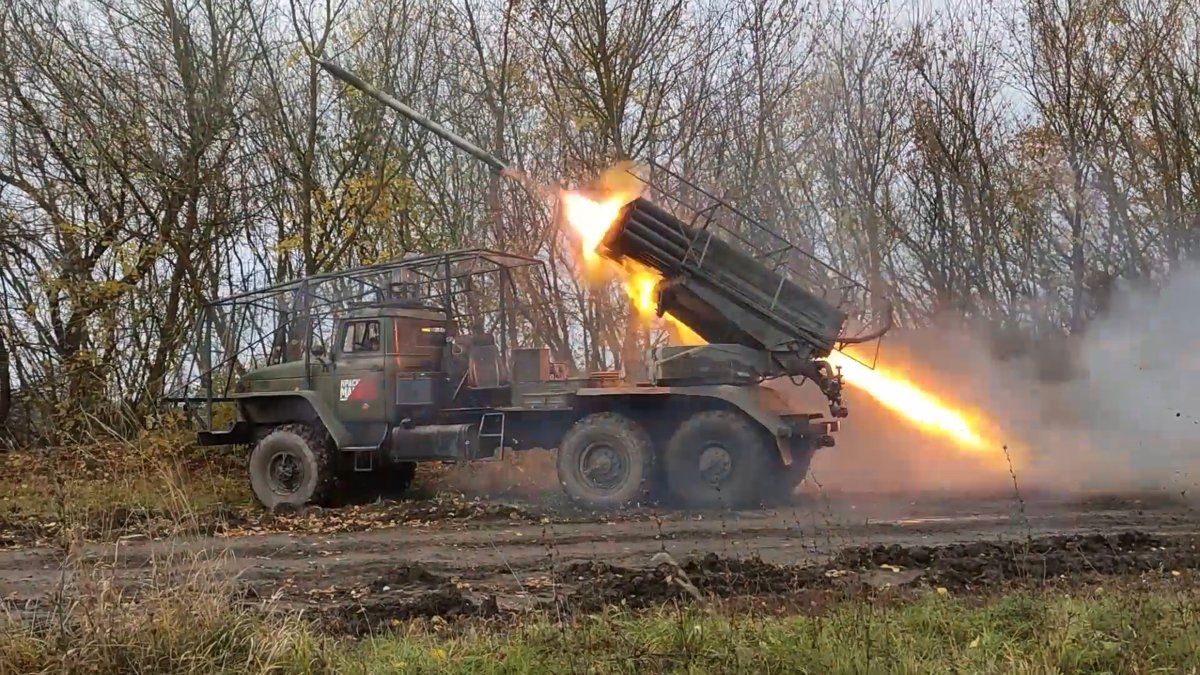While China remains outwardly sanguine on North Korea, subtle differences in their diplomatic relations this year may signal rising frustration with Kim Jong Un's deepening military cooperation with Russia.
Why It Matters
North Korea and China, long the reclusive country's only ally, declared 2024, the 75th anniversary of diplomatic ties, to be their "Year of Friendship." However, there have been no high-level Chinese exchanges since April, when Beijing sent one of its most senior officials, Zhao Leji, to Pyongyang for the opening ceremony.
Unlike past "Friendship Years," such as the 60th anniversary in 2009, there has been no mention of a closing ceremony in Beijing.

What To Know
Beijing's silence follows speculation over Xi Jinping's omission of a traditional phrase in his correspondence with Kim. Responding to Kim's National Day congratulations, Xi referred to "brotherly Korea" but omitted the usual "friendly neighboring country," which analysts see as a subtle signal of displeasure over Pyongyang's security partnership with Moscow.
Newsweek reached out to the Chinese Foreign Ministry and the North Korean Embassy in China for comment.
Asked about this at the Chinese Foreign Ministry's Monday press briefing, spokesperson Mao Ning demurred, stating the two nations are "friendly neighbors and always enjoy a traditional friendship and cooperative ties."
Analysts have told Newsweek Moscow and Pyongyang's strengthening security ties do not sit well with China, which they say is uneasy about potential Russian arms supplies to North Korea that could increase instability in China's backyard.
The U.S. and its allies have raised concerns Russia could provide Pyongyang with supplies and technical assistance, in exchange for North Korean troops and munitions, that could strengthen Kim's United Nations-sanctioned ballistic missile and nuclear weapons programs.
What People Are Saying
Mao Ning, Chinese Foreign Ministry spokesperson: "We are willing to work with the DPRK [North Korea's official name, he Democratic People's Republic of Korea] to safeguard, consolidate and develop China-DPRK relations in accordance with the important common understanding achieved by the leaders of the two countries."
U.S. Deputy Secretary of State Kurt Campbell. "The topic that is becoming increasingly uncomfortable for Chinese interlocutors really is the DPRK engagement with Russia. In some of the discussions that we've had, it seems that we're informing China of things that they were unaware of, actually, with respect to DPRK pursuits." Campbell said at a November event held by Washington D.C.-based Center for Strategic and International Studies think tank.
Campbell added: "Increasing coordination between Pyongyang and Moscow is unnerving [for China]" and that Russian encouragement could push North Korea into actions not in China's interest.
What's Next?
U.S. officials say Russia has pledged MiG-29 and Su-27 fighter jets in exchange for North Korean troop deployments, and South Korea has reported additional soldiers could soon be sent to Russia.
China has stressed its non-interference in North Korea-Russia relations and is unlikely to signal overt displeasure or significantly scale back its economic and diplomatic support for Russia in the near future, with the "no limits" partners continuing to present a united front against what they characterize as a U.S. hegemony.



















:quality(85):upscale()/2024/04/24/878/n/3019466/36c5693c662965c5d1ce91.72473705_.jpg)
 English (US) ·
English (US) ·